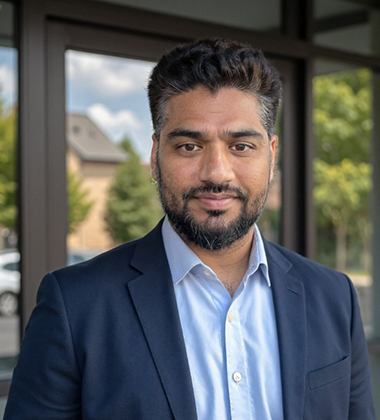What is Addiction? Understanding, Healing and Finding Hope

You may often find yourself rehearsing, “this is it, this is the last time”, but then a couple of hours or days later, you find yourself in the same spot. It could be another drink, one more wager, or one more scroll through a feed you promised yourself you would not go near. That doesn’t mean you’re weak. There is nothing wrong with you. You are human- but you may want to know: what is addiction?
To most individuals, addiction begins in a small way. It can slowly creep into everyday life until it becomes an omen and shadow over everything- relationships, work, health, and self-worth. However, it is possible to recover with the help of knowledge and assistance. Given the right information and support, recovery can be attained.
Understanding the Issue: What Is Addiction?
Addiction is a long-term disorder that interferes with the reward mechanism of the brain, which induces an intense desire to perform the same action despite the negative effects. It may be substances (such as alcohol, drugs or prescription medication) as well as behaviors (such as gambling, gaming, shopping or even social media use).
- Loss of control over use or behaviour
- Cravings or obsessive thinking about it
- Withdrawal symptoms when stopping
- Neglecting responsibilities or relationships
- Continuing despite knowing the harm
It is complicated and usually a combination of genetic susceptibility, mental health difficulties, trauma, stress, and environmental causes. Addiction is non-discriminatory and can happen to anyone, irrespective of age, sex and background.
The symptoms of addiction often include:
The misconception that addiction is merely a question of will is one of the most widespread ones. In truth, it is a physiological and psychological condition, not personal failure.
Why We Avoid Help (Normalizing Resistance)
As much as we may be aware that something is wrong, seeking help is perceived to be one of the most difficult things. Many are afraid that they will be judged, misunderstood or labeled. You may fear that the confession of addiction is the loss of control over your life, or that others will have a different image of you. Then there is the persistent notion that you ought to be capable of “dealing with it” on your own, a notion that is further supported by the stigma attached to addiction.
Such resistance is typical. It is not weak, it is a form of self-protection when you are feeling exposed and overwhelmed. The key point here is that the first step does not necessarily need to be dramatic. it can be as minimal as telling yourself in a quiet voice, “I may need help”.
Signs You May Benefit from Therapy
To know how to quit an addiction, you may want to consider professional help if:
- You feel stuck in a cycle you can’t break.
- Your coping strategies no longer work.
- You’ve tried to quit or cut back without success.
- Addiction is impacting your health, relationships, or work.
- You feel guilt, shame, or secrecy around your behaviour.
How Therapy Can Help with Addiction
Therapy for addiction is much more than simply talking about your problems. It is a safe, non-judgmental environment where one can unravel the causes of his or her addiction without feeling judged or ashamed. In treatment, you are treated with empathy and not guilt. It may be through talk therapy, cognitive-behavioral therapy (CBT), or trauma-informed methods, but the end goal is always to provide you with the tools to take back the power in your life.
With the help of a therapist, you can find out what triggers you and learn to employ healthier coping mechanisms, as well as resolve any mental health concerns that can be fueling the addiction cycle. It is an interactive process through which the slightest actions result in long-term change. Addiction therapy is finally about making you realize that recovery is not a process of perfection; it is a process of progression, a choice at a time.
When it comes to how to stop addiction, therapy can help you:
- Identify triggers and high-risk situations before they spiral
- Learn healthier coping strategies to replace harmful patterns
- Address underlying mental health struggles like anxiety, depression, or trauma
- Rebuild damaged relationships and trust
- Create a relapse prevention plan so you can stay on track even when life gets tough
Therapy is about equipping you with the tools to move forward — step by step, without shame.
How Saalvio Can Help You Take the First Step
At Saalvio, we know the first steps on the way to recuperation are somewhat like climbing up a steep hill- it’s heavy and difficult, but not impossible. This is why Saalvio offers you ways to know how to quit an addiction, tools that are intended to assist you in your healing journey.
You might begin with:
- Journaling prompts to uncover hidden patterns behind your substance use or addictive behaviors
- CBT-based thought trackers to challenge the beliefs that keep you stuck
- ThriveAI chatbot for support, Mood or habit trackers to see your progress over time
- Self-guided learning on addiction and recovery so you can understand what’s happening in your brain and body
- Meditation or grounding exercises for moments when cravings hit hard
These are confidential, secure and designed to expand your self-knowledge, meaning when you want to go live in therapy, you will have a solid base to build on.
When You’re Ready: The Value of Live Therapy
Self-guided tools are powerful, but there’s something transformative about live therapy. It’s personal, interactive, and tailored entirely to you.
With live therapy for addiction, you can expect:
- Support that fits your unique story no one-size-fits-all approach
- A confidential, non-judgmental space where you can speak freely
- Evidence-based treatments proven to reduce cravings, manage triggers, and improve mental health
- Skills for emotional regulation to handle stress without turning to substances
- Ongoing relapse prevention strategies to keep your recovery strong
And here is the reality: you do not have to have it all together in order to begin therapy. All you have to do is make that initial step- even a shaky one. Change does not need an embodiment of perfection, only guts.
How Saalvio Platform Supports You
With Saalvio, getting help is simple:
- Book a free consultation: no commitment required.
- Get matched with the right therapist based on your needs, preferences, and background.
- Choose how you connect: live video sessions, secure messaging, or a mix of both.
- Access therapists with diverse languages, specialties, and cultural understanding.
We know addiction can feel isolating, but you don’t have to face it alone. Saalvio connects you to support that fits your life, your culture, and your pace.
Your First Step Towards Recovery
Recovery does not begin when your life is ideal; recovery begins when you make a small choice to be courageous. That might just be downloading a tool, scheduling a call or sending a message to a therapist, which is your first step in case you have a problem with addiction.
At Saalvio, we will take that step with you. Confidentially. Compassionately. Without judgment.
Bottom Line
Just by reading this, you have already taken a brave step. It takes massive courage to come to the truth about addiction and the types of addiction. It implies that you are ready to take a closer look at what is actually going on and think about an alternative way. That is no small thing. Keep in mind, you are not an addiction.
But neither is it that you can do, or that you are, or that is in front of you. You are a whole person that deserves healing, dignity and joy. Every decision you make to change gets you closer to the life that you desire. And this is the hope, that you shall live, that life shall happen now, here and today, with the courage that you have got.

